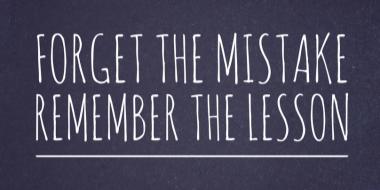Mentioning Your Hobbies and Interests on Your CV
Adding hobbies and interests to your CV is optional. Many candidates tend to leave it out to save on valuable space. Yet, including your hobbies and interests can give a human touch to your resume and show recruiters that you are a well-rounded person with a life outside of work. Which hobbies and interests are suitable for sharing with employers?

Most employers will be curious about you as a person and whether you’ll fit into their team culture. As you’ll both be spending a lot of time together, employers will want to know whether they can see themselves getting along with you.
When Should You Add Hobbies and Interests on Your CV / Resume?
Hobbies and interests can be a great way to showcase your skills and provide employers with a glimpse into your personality and interests. However, the section is more valuable for some candidates than others.
- If you’re a recent graduate or a junior candidate, you might not have very much relevant work experience to draw on for your CV. As such, it can be a challenge to prove to employers that you have the necessary skills and experience for the job. In this case, relevant hobbies and interests are a valid way of showing both hard and soft skills, and demonstrating that you have what it takes to do the job.
- Similarly, if you’re changing careers and your previous work experience isn’t particularly relevant to the types of jobs you’re applying for, hobbies and interests can be helpful. In a CV less focused on your work history, hobbies and interests is one of several sections that can plug gaps in your portfolio of skills and experience.
- If the employer specifically asks for that information. As always, you should follow any explicit directions the employer gives.
- If the company values unique personalities and traits. In this case, showcasing your personality by listing your hobbies and interests will add value to your resume.
- If your hobbies and interests line up with any of the characteristics or responsibilities outlined in the job posting. Listing your relevant hobbies and interests will further reinforce that you are the best person for the job.
- If you’ve carried out any activities from the job description in your leisure time, or you’ve gained experience through hobbies that you can apply to the role, these are all valid to include. As long as you relate the hobbies you mention back to the job description and demonstrate skills or experience the employer is seeking, your hobbies and interests can play an important role in your CV.
A ‘hobbies and interests’ section on your CV not only gives employers a glimpse of your character and personality, but also provides a great basis for small talk in interviews.
Not all hobbies and interests should be included in your CV. A good tip is to think about the position you’re applying for and to select hobbies and interests that complement your skills and experience. With our resume templates you can easily decide which hobbies and interests to include, or whether you want to include any at all.
Expert Tip:
The Difference Between Hobbies and Interests
Hobbies and interests are, in fact, different. Hobbies are activities that you regularly do (e.g. you play basketball in a rec league) and interests are more cerebral, conceptual, or goal-oriented (e.g. you are interested in basketball trivia).
You can use this distinction to your advantage to position yourself as a good fit for a job. If, for example, the position requires regular travel abroad but you haven’t traveled much, you could say that you are interested in international travel. This indicates that you are open to and excited about the possibility, but you won’t be falsely claiming that you travel frequently by listing it as a hobby.
Ultimately, both hobbies and interests are generally pursued outside of work hours, non-professionally, and usually for no pay - otherwise, the activity would qualify as work and should go under your work experience section.
Examples of hobbies and interests to include in your CV
It’s important to be selective about the hobbies and interests you include on your CV. You wouldn’t list every single job you’ve ever had on your CV, so by the same token, you don’t need to mention every hobby you’ve ever pursued. Consider which of your hobbies are most appropriate for the job you’re applying for, and add details that show how they’ve helped you to gain the skills and experience required for the job.
Here are examples of hobbies and interests that add value to your application and highlight key skills, along with examples of how to add them to a CV:
Volunteering
Having an interest in helping others and giving back to your communities is highly commendable. Volunteering is a great addition to your CV because it shows that you’re caring and that you’re able to step out of your comfort zone.
You could mention volunteering in its own separate section, or as part of your hobbies and interests section. If you’re adding volunteer roles in a separate section, follow the same format as your work experience. However, if you’re mentioning them in your hobbies and interests section, you can mention them more briefly. For example:
Volunteer youth club supervisor: organising and delivering youth outreach sessions for girls aged 11 to 16. Coaching new skills, mentoring the girls and carrying out everyday administrative tasks, including managing the club’s finances and ordering equipment.
Blogging/writing
Communication is a key skill required in every company. Blogging or just about any kind of writing demonstrates that you’re a good communicator and that you can think creatively. Even better, if you can show employers concrete examples. Here’s an example of how to include your writing activities in your hobbies and interests section:
Blogging: writing and curating a blog on local historical architecture, including managing social media channels to generate interest and followers. Researching local history and interviewing residents with architectural stories to write and publish weekly content to more than 1,000 followers.
Social media/podcasting
Both social media and podcasting experience indicate that you are up-to-date on current technology, have at least a basic handle on marketing and audience building, and possess some industry expertise.
Sports
Team sports such as football, basketball, rugby, etc. show that you’re able to work well in a team. If you’re a captain of a team, it’s a great opportunity to highlight your leadership skills. Use the following example to add your team sports to your CV:
Cricket: captaining the local cricket team in the Hampshire Village Cricket League Division 1, assisting with coaching sessions, delivering team talks, assisting management with selection and tactics, and organising match day logistics and team social events.
Strategic games
Activities like chess and puzzle-solving showcase your intelligence (especially, chess which is a notoriously difficult game!) and demonstrate critical-thinking skills. Take a look at this example of a hobbies and interests entry for chess:
Chess: competing at Newbury chess club, winning the annual club tournament twice in the past 10 years. Consistently rated between 1,700 and 1,750.
Travelling
Travel indicates worldly awareness, cultural sensitivity, adaptability, and organization. Bear in mind that employers don’t want to read about how you developed your interpersonal skills meeting people in bars! Be sure to highlight any work experience or languages acquired. Here’s an example of how to mention travel on your CV:
Travel: exploring world cultures, including travelling to more than 20 countries across four continents. Travelling on a minimal budget for six months backpacking across Europe, including studying local culture, cuisine and languages, to develop conversational competency in Spanish, Portuguese and Italian.
Creative pursuits (art, photography, music)
Many jobs require creative skills, and listing your creative pursuits indicates critical thinking skills, good conceptualization, and collaborative abilities.
Learning languages
Nowadays, it’s not enough to speak English; the largest companies operate in international environments. Learning a language or two can help you stand out from the competition. Just make sure you don’t exaggerate your language abilities, but if you choose to include languages in your hobbies and interests, follow this example:
Languages: studying foreign languages, with particular interest in Japanese and Korean. Developed strong Japanese competency in both spoken and written forms, as well as basic Korean conversation skills.
Reading
Reading keeps your mind sharp and helps reduce stress, and it suggests that you have a healthy work-life balance. However, it is a bit generic, so consider including some of your favorite work-appropriate genres or authors. Specify the type of books you enjoy reading, and make your reading relevant to the job you’re applying for, as follows:
Reading: studying current affairs magazines, political memoirs and non-fiction books on economics and finance, to understand the global political and economic landscape and it’s impact on business.
Yoga
Yoga demonstrates that you’re able to stay calm which is a valuable skill in high-energy, deadline-driven environments. It also shows that you have an outlet for stress and that you care about your well-being - employers want a healthy workforce. Here’s an example of how to mention yoga in your CV’s hobbies and interests section:
Yoga: participating in twice-weekly yoga sessions to develop my physical strength, manage stress and develop a more reflective mindset. Sessions have helped me remain calm under pressure and maintain higher energy levels for longer in my work.
Hobbies and interests that don’t belong on your CV/Resume
Of course, you should never include hobbies or interests that are violent, overly dangerous, or illegal. Avoid listing anything that has to do with politics, religion, or other private activities as these topics can be controversial and potentially alienating. Not all hobbies and interests will align with the professional image that you’re trying to convey to recruiters.
Finally, don’t include anything that’s too out there or strange. It’s okay to be quirky and unique, but don’t intentionally include outrageous hobbies or interests on your resume. It will likely come off as insincere or as if you aren’t taking the job application process seriously.
- Going out or socialising: As most people like to socialise, this activity says little about you as a person.
- Gambling: Recruiters may get the idea that you can’t take responsibility and that you have an addiction, even if that might be an unfair assumption.
- Extreme sports: Extreme sports demonstrate you’re comfortable stretching yourself, but at the same time, raise concerns that they will impede your ability to work.
- Religious or political activities: Stating your religious or political activities makes you vulnerable to discrimination.
- Listening to music: Everyone listens to music, so this doesn’t tell employers anything about you.
- Watching TV: Again, this is not an activity that is unique to you.
- Family: You may spend the majority of your free time with your family, but this says nothing relevant about your background or your aspirations.
How do you pick the right hobbies and interests for your CV?
Selecting the most appropriate hobbies and interests to include in your CV can have a big impact on your chances of making a positive impression on the employer. Take a look at these tips to help you choose hobbies and interests for maximum impact on your CV:
- Pick hobbies and interests relevant to the job description: Use the job description as a guide to deciding which hobbies and interests to include in your CV. Review the key skills and experience listed in the job description and focus on hobbies that help you to showcase those skills. These could be technical skills required for the day-to-day duties of the job, or specialist knowledge that can inform your work.
- Select hobbies that showcase relevant transferable skills: in the rapidly evolving job market and work landscape, transferable skills are becoming ever-more important for employers. Consider how your hobbies and interests might help you to demonstrate sought-after transferable skills such as leadership, decision-making, problem-solving, analytical thinking, communication and flexibility.
- Avoid adding unnecessary hobbies and interests: focus on the hobbies and interests that are most relevant to the job description and help you to stand out from other candidates, offering something unique that other applicants might not have. Avoid mentioning everyday leisure activities that most people participate in, and focus on hobbies that show a level of professionalism and dedication. Exclude any hobbies that could be divisive or leave you open to negative perceptions from recruiters or hiring managers.
How do you list your hobbies and interests in your CV?
While there’s a distinction between a hobby and an interest, there’s no need to add separate sections for each on your CV. If you’ve decided that it makes sense for you to include hobbies and interests in your resume, here’s how to do effectively:
Research the Company and Person Interviewing You
Do some basic background research on the company that you are applying to and the person who will potentially be interviewing you. Carefully read the job description to identify the company’s desired traits, and browse through their website and social media pages to get a better understanding of their values and culture. Use this research to determine what types of hobbies and interests will be attractive to that specific company and hiring manager.
Use This Section to Highlight Your Skills and Personality
Especially if you don’t have a lot of work experience or professional skills to highlight, use your interests section to outline useful soft skills and relevant personality traits. As outlined above, your hobbies and interests can say a lot about you, so choose wisely and showcase what you have to offer to the company.
Place Your Hobbies and Interests at the Bottom of Your CV
Create a specific section on your resume that is titled ‘Hobbies and Interests’ or just ‘Interests’ and place it at the very bottom of the page. Other sections like your header, resume summary statement, work experience, education, and skills take priority and should be listed first. If adding hobbies and interests will make your resume longer than one page, don’t force it - just omit the section.
Be Specific, Interesting, and Honest
Of course, you should never include hobbies on your CV that you don’t really do or interests that you don’t actually have. A potential employer might very well ask about your listed hobbies and interests in an interview, so only list something if you are prepared to talk about it.
Limit to 5 Interests and/or Hobbies
Potential employers will likely only spend a few seconds glancing through your resume, and they don’t want to read about every activity you’ve ever done in your life. Make a list of your current hobbies and interests, pick the top five to include, and give a short description for each.
When not to include your hobbies and interests in your CV/Resume
Hobbies and interests may add little value to your CV if you have plenty of professional experience in your field and you are applying for another job in the same industry or you’re applying for more corporate roles.
Before adding a section for hobbies and interests to your resume, research your prospective employer to get a sense of their company culture. If there’s an emphasis on team events in the job description or on their website, it’s safe to say that you can include your hobbies and interests in your CV. If, on the other hand, you get the feeling that the company culture is more formal, it’s best to leave them off your resume.
A two-year study on cultural matching in hiring processes showed that: “Employers sought candidates who were not only competent but also culturally similar to themselves in terms of leisure pursuits, experiences, and self-presentation styles.”
Whether you include a ‘hobbies and interests’ section on your CV is entirely up to you. Consider the amount of space you have on your resume and whether your hobbies and interests reflect the image you want to portray to recruiters. Bear in mind that including them may just give you the edge over other candidates. Check Jobseeker's professional CV examples and templates for inspiration.
Impress employers with your CV
Step-by-step guidance to create a professional CV in minutes.



